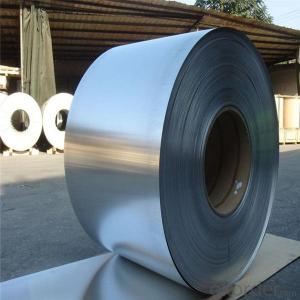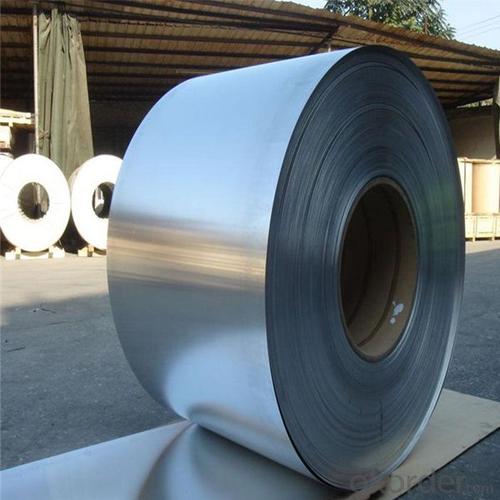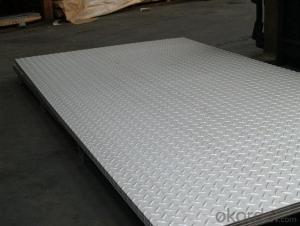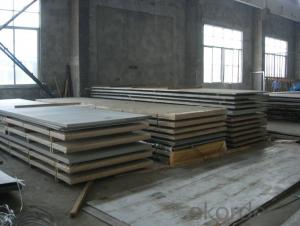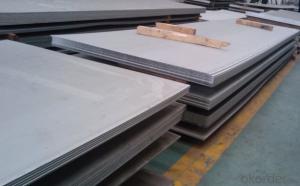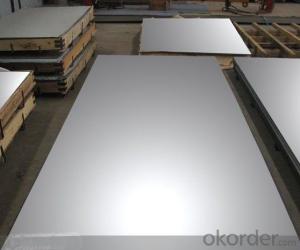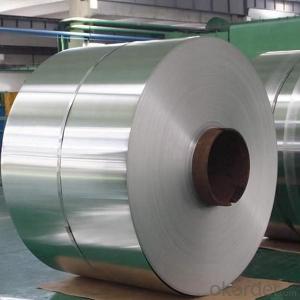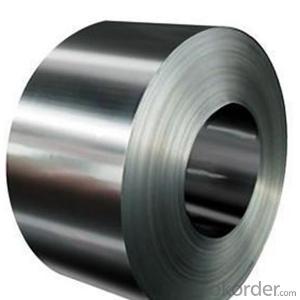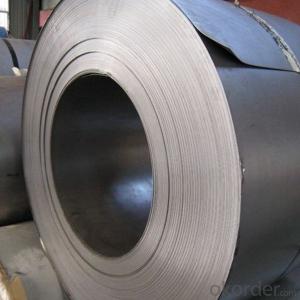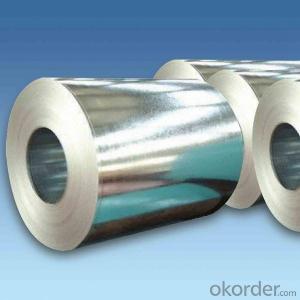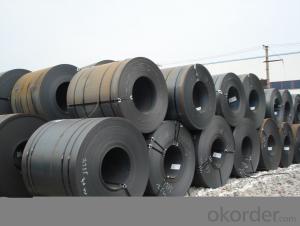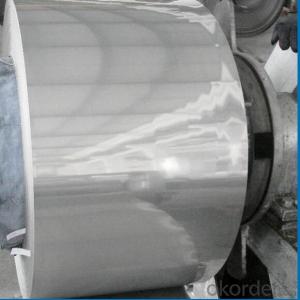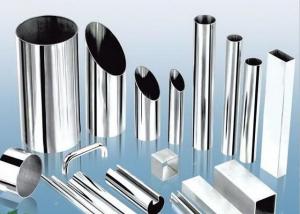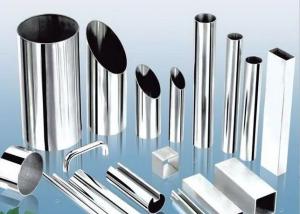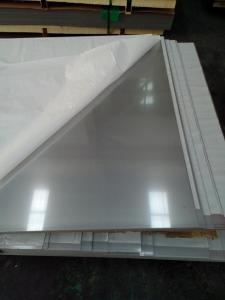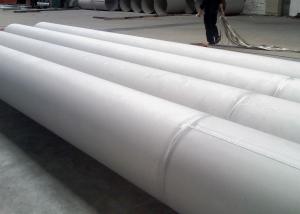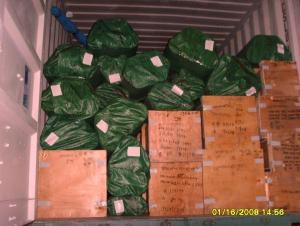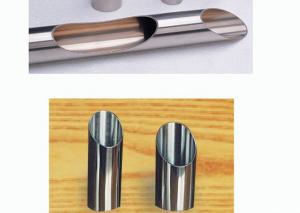Hot Rolled Stainless Steel Coils 304L Made in China
- Loading Port:
- China main port
- Payment Terms:
- TT OR LC
- Min Order Qty:
- 20 m.t.
- Supply Capability:
- 100000 m.t./month
OKorder Service Pledge
OKorder Financial Service
You Might Also Like
Specification
Products Description
Name: stainless steel coils/plates/sheets
Discharge Port: Any Port, China
Cold Rolled Size: thickness0.3-8mm,Width:280-2100mm
Hot Rolled Size: Thickness3-14mm,Width:650-2100mm
Hot Rolled/Cold Rolled Plates : Thickness2-80mm,Width:1500-3000mm
Coil Weight: About 20 Tons
Grade: 201,202,304/304L/304H, 316/316L/316H, 409/L,430 etc.
Technique: Hot Rolled/Cold Rolled
Finish:2B, BA, 2D, No1, No2 etc
Edge: Mill Edge / Slitting Edge
Packaging: In bundles, or as customer's requirement
Place of Origin: Made in China
MOQ: 20 Tons
Payment Terms: 100% LC at sight, or 100%TT in advance
Delivery Time: With 30-40 days after deposit
Pictures:
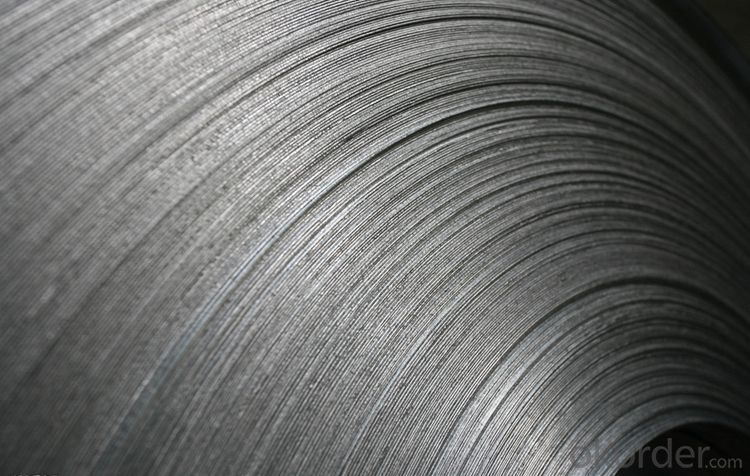
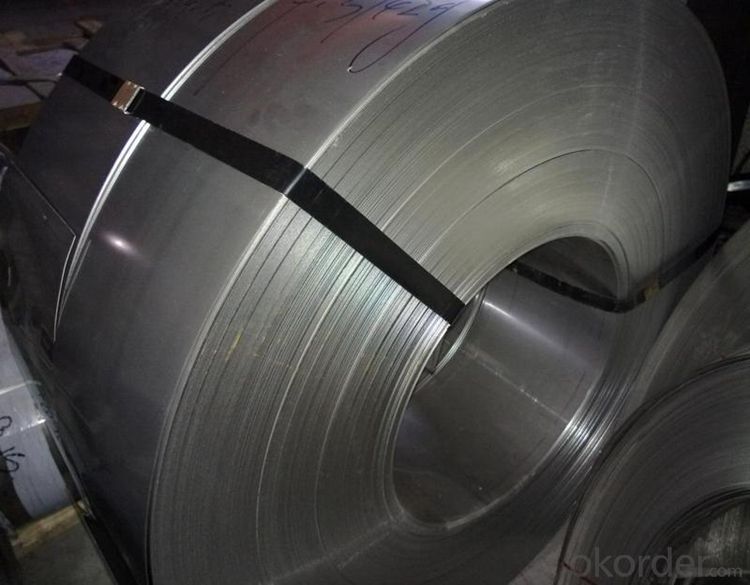
Application
Boiler heat exchanger, machinery andpetroleum ,chemical industries, hardware fields,Food industry,construction material,kitchen utensils, building construction, medical equipment,chemical tank, pipe etc
Export Markets
Our target market is the international market. Every year we export most of products to countries like India, Pakistan, South Korea, Brazil, Australia, South Africa, Spain, Sri Lanka, Taiwan, Hong Kong, etc.
- Q: Are stainless steel sheets suitable for desalination plants?
- Yes, stainless steel sheets are suitable for desalination plants. Stainless steel is highly resistant to corrosion and can withstand the harsh conditions found in desalination plants, such as exposure to saltwater and high temperatures. It has excellent durability and mechanical properties, making it ideal for use in various components of desalination plants, including piping, heat exchangers, and tanks. Stainless steel also has good hygiene properties, making it suitable for desalination plants that require strict cleanliness standards. Additionally, stainless steel sheets can be easily fabricated and installed, allowing for efficient construction and maintenance of desalination plants.
- Q: Can stainless steel sheets be used for water treatment equipment?
- Indeed, water treatment equipment can indeed utilize stainless steel sheets. The exceptional resistance of stainless steel to both corrosion and oxidation renders it an optimal substance for water treatment purposes. In fact, it is frequently employed for the construction of tanks, pipes, valves, and other essential components within water treatment systems. Due to its durability and hygienic attributes, stainless steel proves itself capable of handling diverse forms of water, ranging from potable water to wastewater and industrial process water. Furthermore, stainless steel's effortless cleaning and maintenance procedures guarantee the longevity and effectiveness of water treatment equipment.
- Q: 304 stainless steel plate price ups and downs affected by what factors?
- Some monopolies or monopolies combine to control prices. The indirect regulation of some large enterprises also has a partial effect on the price of stainless steel.
- Q: How do I prevent galling on stainless steel sheets?
- To prevent galling on stainless steel sheets, you can apply a lubricant or anti-seize compound on the surface before any friction occurs. This will help reduce friction and prevent the sheets from sticking or seizing together. Additionally, using proper machining techniques and avoiding excessive pressure or heat can also help prevent galling.
- Q: Can stainless steel sheets be used for outdoor signage?
- Indeed, outdoor signage can be made using stainless steel sheets. This material, known for its durability and resistance to corrosion, remains unscathed in challenging weather conditions while preserving its visual appeal. Its widespread use in outdoor signage can be attributed to its ability to withstand rust, fading, and harm caused by sunlight, rain, snow, and other environmental factors. Moreover, stainless steel sheets can be personalized with different finishes like brushed or polished, enhancing their aesthetic allure and making them suitable for any outdoor signage requirement.
- Q: What are the applications of stainless steel sheets in the automotive industry?
- Due to their advantageous properties, stainless steel sheets are extensively utilized in the automotive industry. These sheets play a vital role in various automobile components, contributing to the overall performance, durability, and aesthetics of vehicles. A key application of stainless steel sheets in the automotive industry is seen in the manufacturing of exhaust systems. With its high resistance to corrosion and heat, stainless steel proves to be an ideal material for exhaust pipes. These sheets can endure the elevated temperatures generated by the engine, ensuring the longevity and reliability of the exhaust system. Furthermore, stainless steel sheets find use in the production of automotive body panels. They offer exceptional strength and rigidity, enabling the creation of lightweight yet robust body parts. The corrosion resistance of stainless steel is also advantageous, as it guarantees the long-lasting quality of the body panels, even in harsh weather conditions. Moreover, stainless steel sheets are employed in the fabrication of fuel tanks and other fluid storage components. The corrosion resistance and ability to withstand high pressure make stainless steel a suitable material for such applications. The integration of stainless steel in fuel tanks ensures their leak-free and durable nature, ultimately enhancing safety and longevity. Additionally, stainless steel sheets are utilized in the manufacture of various interior and exterior trim parts. These include decorative elements like grilles, trims, and accents, which enhance the vehicle's aesthetics. The ability of stainless steel to be polished and finished to a high shine adds an element of elegance and sophistication to the car's design. To summarize, stainless steel sheets have multiple applications within the automotive industry. They are utilized in exhaust systems, body panels, fuel tanks, and trim parts, among others. The exceptional properties of stainless steel, including corrosion resistance, heat resistance, and strength, greatly contribute to the overall performance, durability, and aesthetics of automobiles.
- Q: Do stainless steel sheets require any special handling during installation?
- Yes, stainless steel sheets do require special handling during installation. Here are a few important considerations: 1. Avoid Contamination: Stainless steel is prone to contamination from various sources, such as carbon steel, dirt, or grease. It is crucial to ensure that the installation area is clean and free from any potential contaminants. Tools used during installation should also be clean and free from other metals. 2. Protection from Scratches: Stainless steel sheets are susceptible to scratching during installation. It is important to handle them with care and use protective coverings or wraps to prevent any scratches or damage. Additionally, using non-abrasive tools and avoiding dragging or sliding the sheets across surfaces can help maintain their integrity. 3. Proper Fixing Techniques: Stainless steel sheets are typically secured using mechanical fasteners or adhesives. It is essential to follow the manufacturer's recommendations or industry best practices for the specific installation method. This includes using the correct type and size of fasteners and ensuring they are properly tightened without over-torquing, which can cause damage. 4. Expansion and Contraction: Stainless steel sheets can expand or contract with changes in temperature. During installation, it is necessary to allow for this movement by providing adequate clearance or using expansion joints where required. Failing to account for thermal expansion can lead to buckling, warping, or stress on the sheets. 5. Avoiding Galvanic Corrosion: Stainless steel sheets should not come into direct contact with dissimilar metals, especially those with higher galvanic potential, as it can cause galvanic corrosion. Using compatible materials and insulating stainless steel sheets from direct contact with other metals can help prevent this type of corrosion. By following these special handling guidelines, stainless steel sheets can be installed correctly, maintaining their aesthetic appeal and durability over time.
- Q: What is the impact resistance of stainless steel sheets?
- Stainless steel sheets have high impact resistance due to their inherent strength and durability. They can withstand heavy impacts without deformation or breakage, making them suitable for various applications where resistance to impact is crucial, such as in construction, automotive, and aerospace industries.
- Q: Can stainless steel sheets be used for medical implant devices?
- Medical implant devices can utilize stainless steel sheets, as they possess excellent mechanical properties, corrosion resistance, and biocompatibility. Stainless steel is widely employed in the medical field due to its strength, durability, and ability to endure sterilization processes. Various medical implant devices, including plates, screws, and pins used in orthopedic surgeries, dental implants, cardiovascular devices, and other procedures, can be fabricated from stainless steel sheets. The high strength-to-weight ratio of stainless steel makes it suitable for applications requiring load-bearing capabilities, while its resistance to corrosion ensures longevity within the body. Moreover, stainless steel is a biocompatible material, meaning it is well-tolerated by the human body and does not cause adverse reactions or allergies. Techniques like passivation or coating can enhance the biocompatibility of stainless steel surfaces. It is vital to emphasize that selecting the appropriate stainless steel grade and surface finish is essential for medical implant devices to ensure compatibility with specific body tissues and environments. Thorough testing and regulatory approval are also necessary to guarantee the safety and effectiveness of stainless steel medical implant devices. To summarize, stainless steel sheets can indeed be utilized for medical implant devices due to their mechanical properties, corrosion resistance, and biocompatibility. Ensuring the suitability and safety of stainless steel implants in medical applications necessitates proper selection, testing, and regulatory approval.
- Q: How do you determine the best grade of stainless steel sheet for a specific application?
- When determining the ideal stainless steel sheet grade for a particular application, various factors need to be taken into account. Firstly, one must assess the environmental conditions to which the sheet will be exposed, including temperature, humidity, and potential contact with corrosive substances. By doing so, the necessary level of corrosion resistance for the stainless steel can be determined. Secondly, the mechanical properties required for the application must be considered, including strength, hardness, and ductility. The intended use of the stainless steel sheet, whether it be for structural purposes or for a decorative application, will help determine the specific mechanical properties needed. Furthermore, the fabrication process and any subsequent treatments or finishes must be taken into consideration. Depending on their composition and characteristics, certain stainless steel grades may be more suitable for forming, welding, or machining. Additionally, it is important to consider the cost implications associated with different stainless steel grades. Higher grades often come with a higher price tag, so it is essential to balance the desired performance with the available budget. To determine the most suitable stainless steel sheet grade, it is recommended to seek advice from experts in the field, such as stainless steel suppliers or engineers specializing in materials selection. Their knowledge and experience can provide valuable guidance, considering the specific requirements of the application.
Send your message to us
Hot Rolled Stainless Steel Coils 304L Made in China
- Loading Port:
- China main port
- Payment Terms:
- TT OR LC
- Min Order Qty:
- 20 m.t.
- Supply Capability:
- 100000 m.t./month
OKorder Service Pledge
OKorder Financial Service
Similar products
Hot products
Hot Searches
Related keywords
